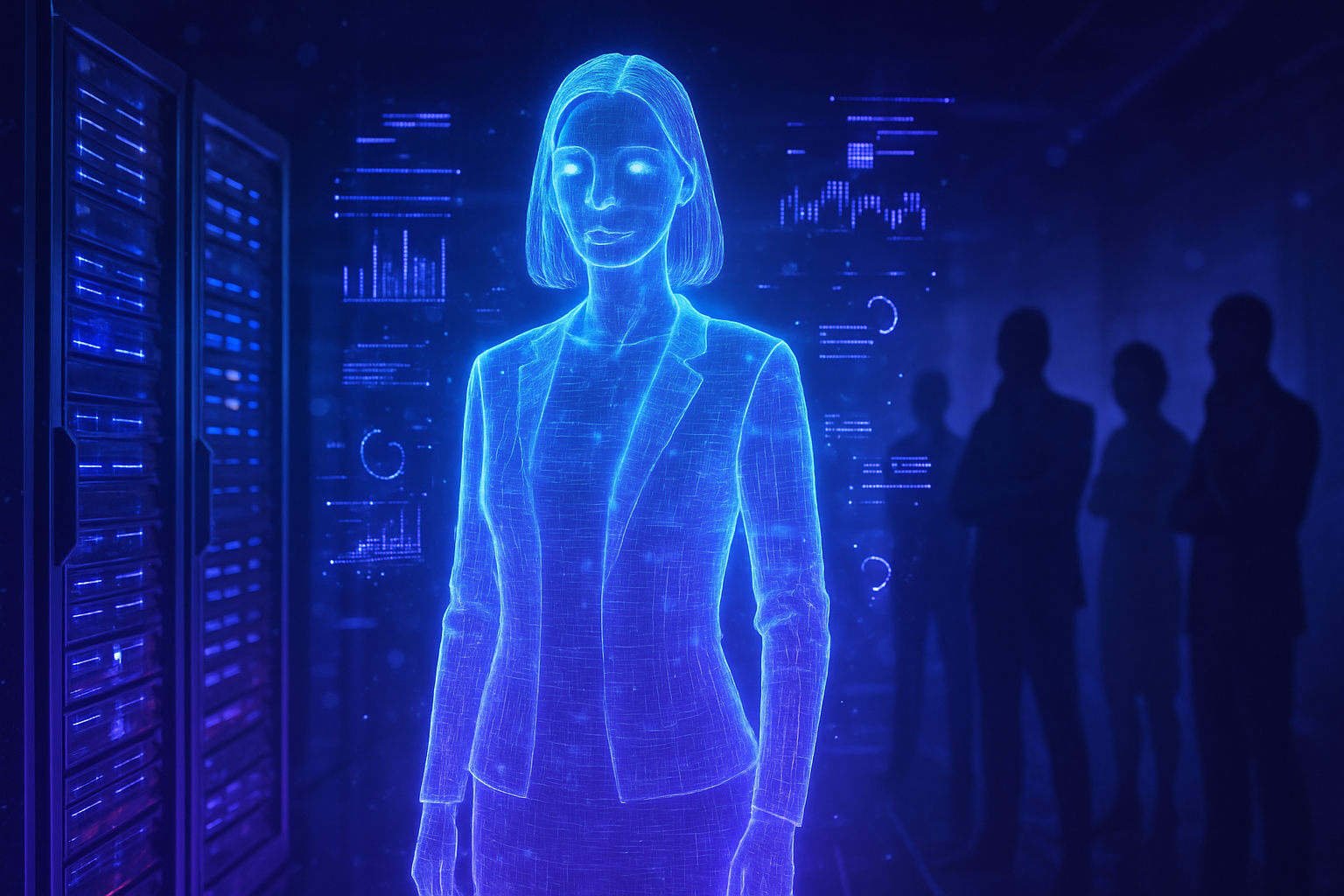Can a machine surpass humans in justice? The appointment of an AI within the Albanian government raises profound ethical questions. The rise of Diella, as the minister in charge of public procurement, sparks the debate about its ability to ensure integrity in the face of potential algorithmic bias. Is machine governance truly more impartial? The absence of moral sense in an AI questions the very notion of political responsibility, while humans remain susceptible to influence and corruption.
Diella, the intelligently programmed agent in the Albanian government
The Albanian Prime Minister, Edi Rama, recently promoted Diella, an artificial intelligence, to the position of minister in charge of public procurement. This decision aims to combat corruption, a well-entrenched plague in the Albanian political landscape. The appointment of a programmed agent sparks passionate discussions about a machine’s capacity to better handle critical decision-making.
The ethical issues of artificial intelligence
Jean-Gabriel Ganascia, a computer science professor, highlights the political and ethical implications of such an appointment. According to him, this nomination could be aimed at “obscuring responsibilities” and eliminating potential rivals within the government. In a context where politics and personal interests intertwine, the issue of responsibility is unavoidable.
A model of reliability?
Machines, by their nature, offer consistency in their operations, promising equivalent results for similar inputs. This trait could suggest a superior reliability compared to humans. The algorithms that govern them seem at first glance exempt from pitfalls, which gives them a certain predictability.
A contested predictability
Despite this apparent consistency, numerous studies show that AI models can produce unpredictable results. Machines programmed with generative AI can, repeatedly, offer divergent answers to the same question. These “hallucinations” raise concerns about the integrity and accuracy of the decisions they can generate.
A more integral agent than a human?
Questioning the capability of a synthetic agent to surpass human ethics remains an open issue. The inherently fallible human nature presents nuances that artificial intelligence struggles to replicate. Diella’s intention to act in favor of justice does not guarantee that it will indeed act in the interest of citizens.
A hidden political will
The decision to appoint Diella is part of a broader desire for reform within the government. Edi Rama, with over twenty-five years of political experience, is aware of past failures. The commitment to EU membership provides additional legitimacy to this initiative. It is legitimate to wonder whether technology can truly be a vector for change or if it serves to mask the shortcomings of political actors.
Study of societal impacts
Observations have been made regarding the attainment of trust in AI systems. A recent study reveals how users exhibit excessive trust in these technologies, even when errors occur. This attitude can be problematic in contexts where precision and accuracy are paramount.
Future implications
In the meantime, Diella’s operation and influence on governmental decision-making remain to be observed. This development raises questions about the future of political institutions. Will a virtual agent be able to navigate seamlessly through the complex spheres of politics and administration? Will the results of this experiment illuminate the path forward for the introduction of AI in other areas? The debate on these issues is far from over.
To learn more about the various applications of artificial intelligence, visit these related articles: Double facet of AI, Thinking Machines, and AI tool exploiting vulnerabilities.
Common FAQs
What are Diella’s responsibilities as the minister in charge of public procurement?
Diella is responsible for making decisions regarding the awarding of public contracts, with the stated aim of combating corruption and embezzlement.
How can Diella, as an artificial intelligence, ensure impartial decisions?
Although Diella is programmed to analyze data systematically, there is no guarantee that her decisions will always be free from bias, as her algorithms could reflect prejudices present in the data she uses.
What are the risks associated with appointing an AI to a governmental role?
Risks include obscuring political responsibilities, the potential elimination of competitors, and the possibility that digital agents influence decisions in a non-transparent manner.
Can we truly trust Diella more than a human being?
Trust in Diella depends on the transparency and ethics of her algorithms, but it is difficult to determine if an AI can make fairer choices than a human, given the complexity of decision-making contexts.
Does Diella have the ability to adapt to changing situations?
Diella’s adaptability skills are limited to the algorithms and programmed instructions, which may make her responses less flexible in the face of unforeseen situations compared to a human.
How will Diella’s recommendations be followed by human decision-makers?
There is no guarantee that Diella’s recommendations will be followed, as human decision-makers remain responsible for their choices and may have personal or political motivations influencing their judgment.
What oversight mechanisms are in place to monitor Diella’s actions?
Oversight mechanisms should include regular audits, checks of input data, and monitoring by professionals to ensure accountability and integrity of the decisions made by Diella.
Could Diella’s appointment influence citizens’ rights?
There are concerns about how algorithmic decisions may impact individual rights, particularly regarding fairness and access to justice, and it is essential to monitor this aspect closely.






